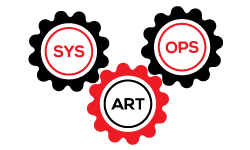WebDav stands for Web Based Distributed Authoring and Versioning.
Collective editing of remote content is usually needed and WebDav is one way to achieve that.
WebDav can be encountered in the Apache HTTP server, Microsoft IIS, WordPress, Drupal, Subversion, Git, Windows explorer and many other places.
What is WebDav
It is a collection of extensions to the HTTP protocol which enables users to collaboratively edit and manage files on remote web servers.
WebDav enables a web server to behave like a file server thus supporting collaborating authoring of content.
It extends the set of standard HTTP methods and headers. It provides the ability to create a file or a folder, edit an already existing file, and perform other operations like copying or deleting files.
It normally uses port 80, as an extension to HTTP protocol for unencrypted access and port 443 for encrypted access (HTTPS).
WebDav Severs
A WebDav Server is basically a webserver but it may be embedded in other systems as well.
The default open source WebDav implementation is the Apache HTTP server. However, other webservers support WebDav through an addon module lke Nginx, lighttpd and Microsoft IIS.
Version Control Systems
A good number of version control systems are accessible via some form of WebDav.
This includes Subversion and Git.
Collaborative Platforms and Content Management Systems.
Collaborative platforms like Microsoft Sharepoint and Content management systems like WordPress, Drupal, and Joomla may have WebDav build in or available via an addon module.
WebDav Clients
These are applications, extensions to file explorers, or file system modules.
A WebDav client may be:
- WebDav File Access Apps
Applications that give you access to remote files are most like WebDav oriented like Cadever, a Linux command line tool, or other tools that use multiple protocols like WinSCP or CyberDuck.
These applications allows you to upload and download files and manipulate files and folders.
When
an application works with files on a WebDav server, collaborative
remote file modifications is enabled. The files are edited without
being downloaded to the local file system for later
re-uploading.
This eliminates the possibility of creating
multiple copies which may likely get out of sync.
- File Explorer Extensions
Most operating systems file managers’s user interfaces provide an extension to present and manipulate WebDav folders and files as if they were local.
These includes Windows File Explorer, MacOs Finder, GNOME Files (Nautilus), and KDE Konquerer.
In each of these cases, there will be a “connect to server” option where you provide a WebDav server’s URL and the provide username and password for accessing the WebDav Server.
The remote files accessed via WebDav are presented as local resources with the capabilities to click, drag, drop etc.
- File system Modules
Multiple file systems include an option of using a low-level file-system module that maps or mounts a connection to a WebDav server as a drive or mount point.
Once the OS has mapped/mounted the WebDav Server, the files and folders on the WebDav server appear to be local.
They are accessed via the normal file access calls local applications are able to access them unaware of their true location.
Alternatives To Webdav
WebDav basically enables remote file editing and manipulation.
There are other numerous mechanisms for working with files on a remote server.
Lets have a look at these alternatives and what makes WebDav different.
FTP – File Transfer Protocol
FTP was used in the early days of internet which means it doesn’t have advanced security mechanisms.
WebDav, on the contrary, takes advantage of HTTPS security.
FTP design is not firewall-friendly whereas WebDav relies on standard mechansism to support webservers.
FTP requires it’s own server process whereas WebDav lives in the webserver.
FTP also doesn’t include collaboration-oriented features like locking and version tracking.
SSH (Secure Shell)
The SSH protocol allows you to securely connect to a remote server and to get file access and excecute commands.
Among the services are SCP(Secure Copy Protocol) and SFTP(Secure File Transfer Protocol).
SSH requires it’s own server process and firewall rules.
SCP only handles moving files while SFTP can manipulate files and folders
They lack collaboration oriented features
Why Choose WebDav
Even though there are several alternatives to WebDav, none of them integrate all the features of WebDav.
WebDav key feautures are:
- OS integration
- Free to use
- Close integration to web services
- Version Control
- Transport Encryption
- Remote Access
- Centralized Storage
- Version Control
- File Locking
WebDav grants remote access to a documents in a Central Store rather than requiring files to be copied over to the user’s local computer and then be copied back again.
WebDav has been used in cloud storage to provide seamless local access to remote files. It has been able to provide the modern working practices of Job sharing, project management, collabotative authoring and development coordination.
Conclusion
WebDav is a long-standing protocol that enables a webserver to act as a file server and support collaborative authoring of content on the web.
